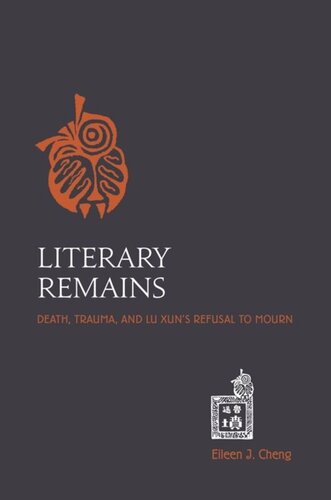

Most ebook files are in PDF format, so you can easily read them using various software such as Foxit Reader or directly on the Google Chrome browser.
Some ebook files are released by publishers in other formats such as .awz, .mobi, .epub, .fb2, etc. You may need to install specific software to read these formats on mobile/PC, such as Calibre.
Please read the tutorial at this link: https://ebookbell.com/faq
We offer FREE conversion to the popular formats you request; however, this may take some time. Therefore, right after payment, please email us, and we will try to provide the service as quickly as possible.
For some exceptional file formats or broken links (if any), please refrain from opening any disputes. Instead, email us first, and we will try to assist within a maximum of 6 hours.
EbookBell Team

5.0
50 reviewsLu Xun (1881–1936), arguably twentieth-century China’s greatest writer, is commonly cast in the mold of a radical iconoclast who vehemently rejected traditional culture. The contradictions and ambivalence so central to his writings, however, are often overlooked. Challenging conventional depictions, Eileen J. Cheng’s innovative readings capture Lu Xun’s disenchantment with modernity and his transformative engagements with traditional literary conventions in his “modern” experimental works. Lurking behind the ambiguity at the heart of his writings are larger questions on the effects of cultural exchange, accommodation, and transformation that Lu Xun grappled with as a writer: How can a culture estranged from its vanishing traditions come to terms with its past? How can a culture, severed from its roots and alienated from the foreign conventions it appropriates, conceptualize its own present and future?
Literary Remains shows how Lu Xun’s own literary encounter with the modern involved a sustained engagement with the past. His creative writings—which imitate, adapt, and parody traditional literary conventions—represent and mirror the trauma of cultural disintegration, in content and in form. His contradictory, uncertain, and at times bizarrely incoherent narratives refuse to conform to conventional modes of meaning making or teleological notions of history, opening up imaginative possibilities for comprehending the past and present without necessarily reifying them.
Behind Lu Xun’s “refusal to mourn,” that is, his insistence on keeping the past and the dead alive in writing, lies an ethical claim: to recover the redemptive meaning of loss. Like a solitary wanderer keeping vigil at the site of destruction, he sifts through the debris, composing epitaphs to mark both the presence and absence of that which has gone before and will soon come to pass. For in the rubble of what remains, he recovered precious gems of illumination through which to assess, critique, and transform the moment of the present. Literary Remains shows how Lu Xun’s literary enterprise is driven by a “radical hope”—that, in spite of the destruction he witnessed and the limits of representation, his writings, like the texts that inspired his own, might somehow capture glimmers of the past and the present, and illuminate a future yet to unfold.
Literary Remains will appeal to a wide audience of students and scholars interested in Lu Xun, modern China, cultural studies, and world literature.